Analysis: Republican midterm victories a boost for Gov Christie’s presidential ambitions
-
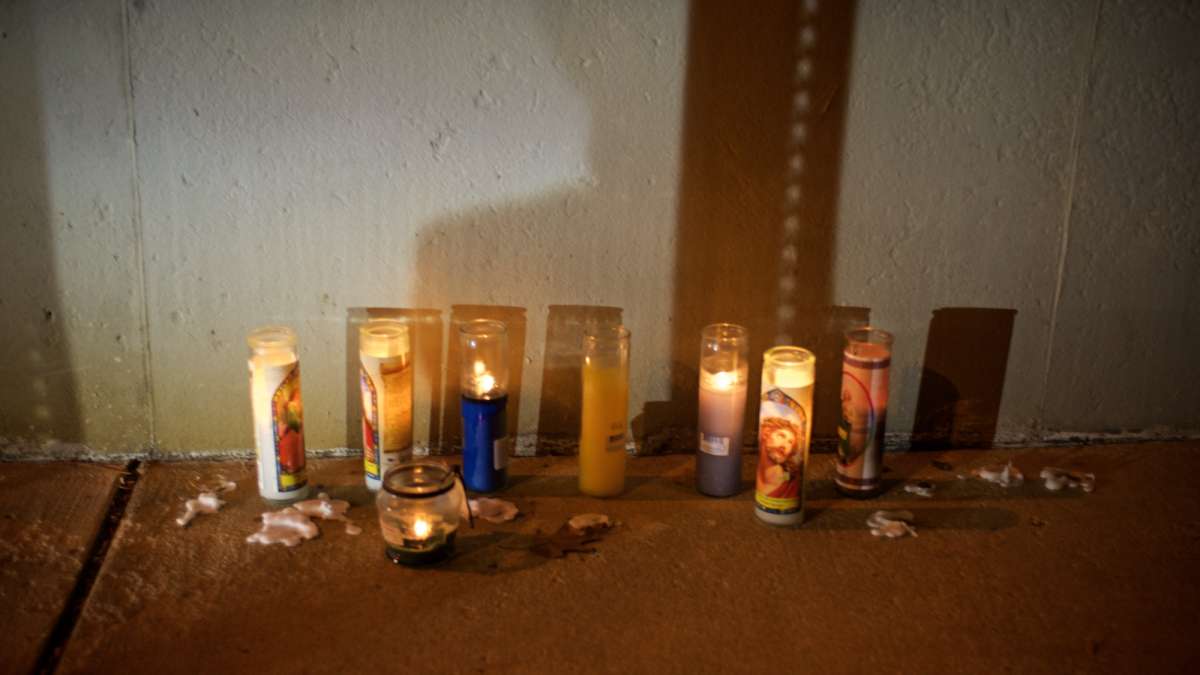
-

-
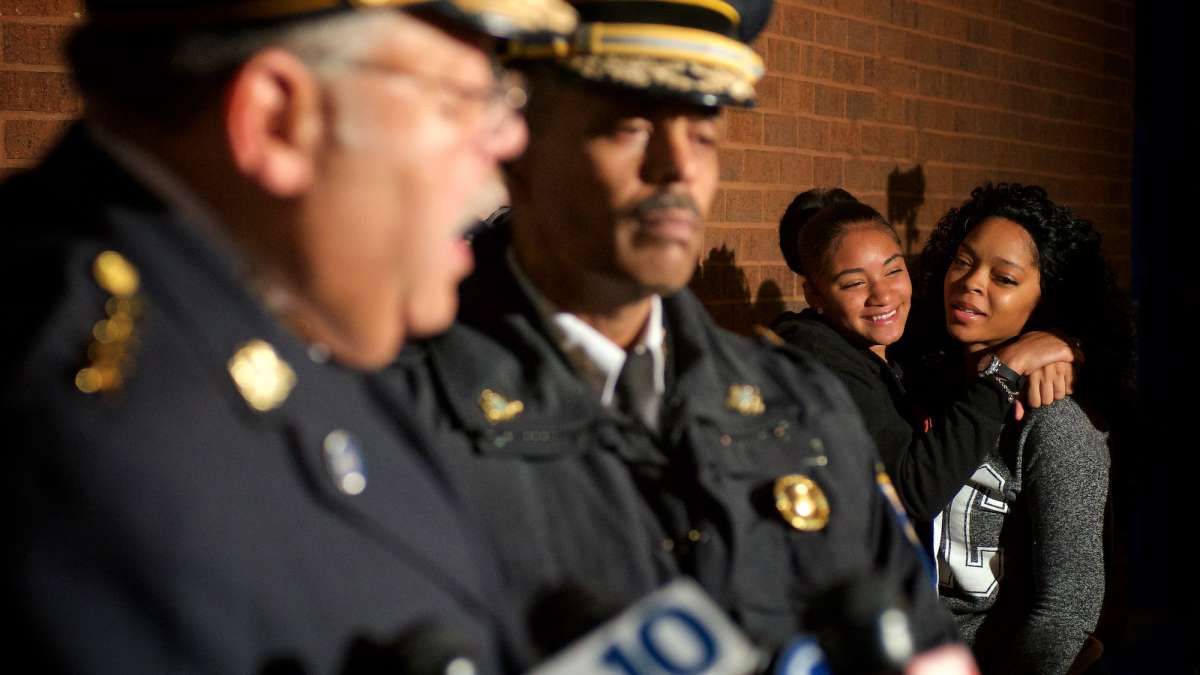
Expressions of relief at a press conference Wednesday night announcing that Carlesha Freeland-Gaither had been found alive and well. (Bas Slabbers/for NewsWorks)
-
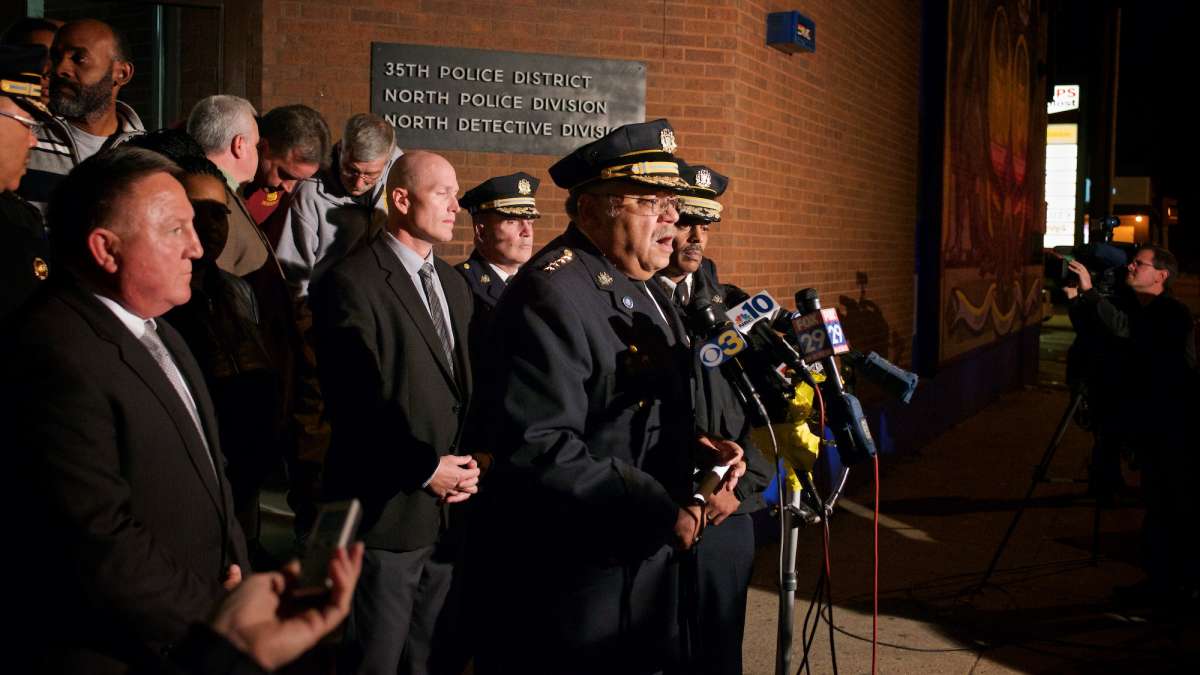
-
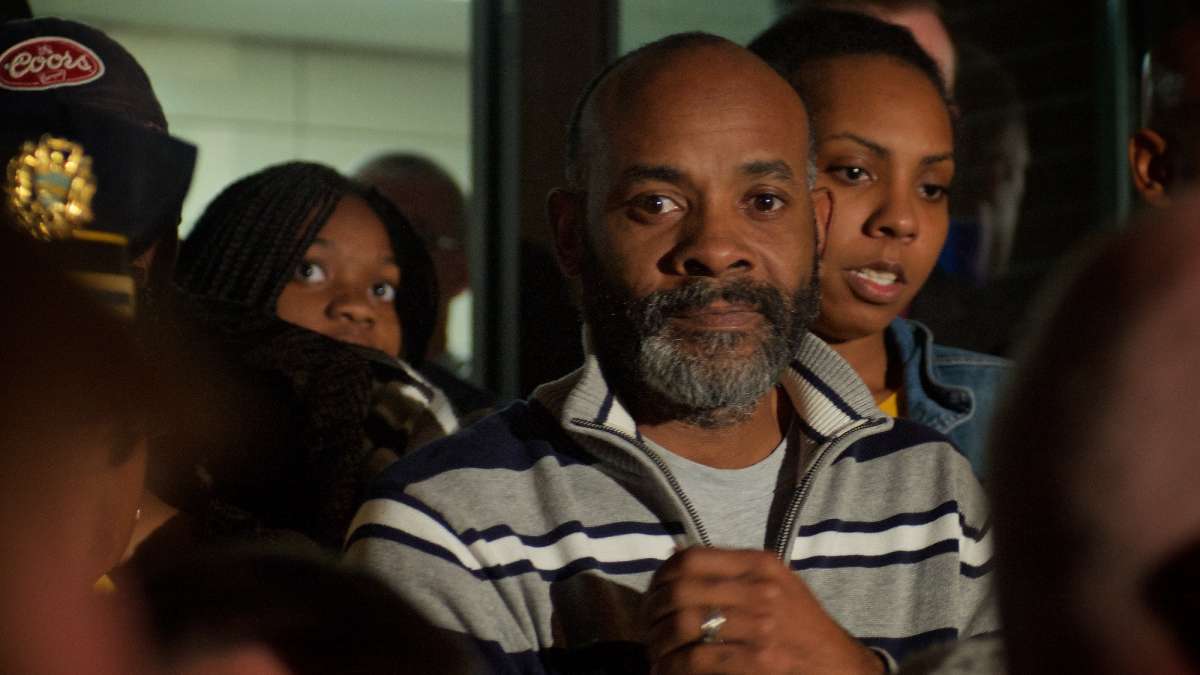
-
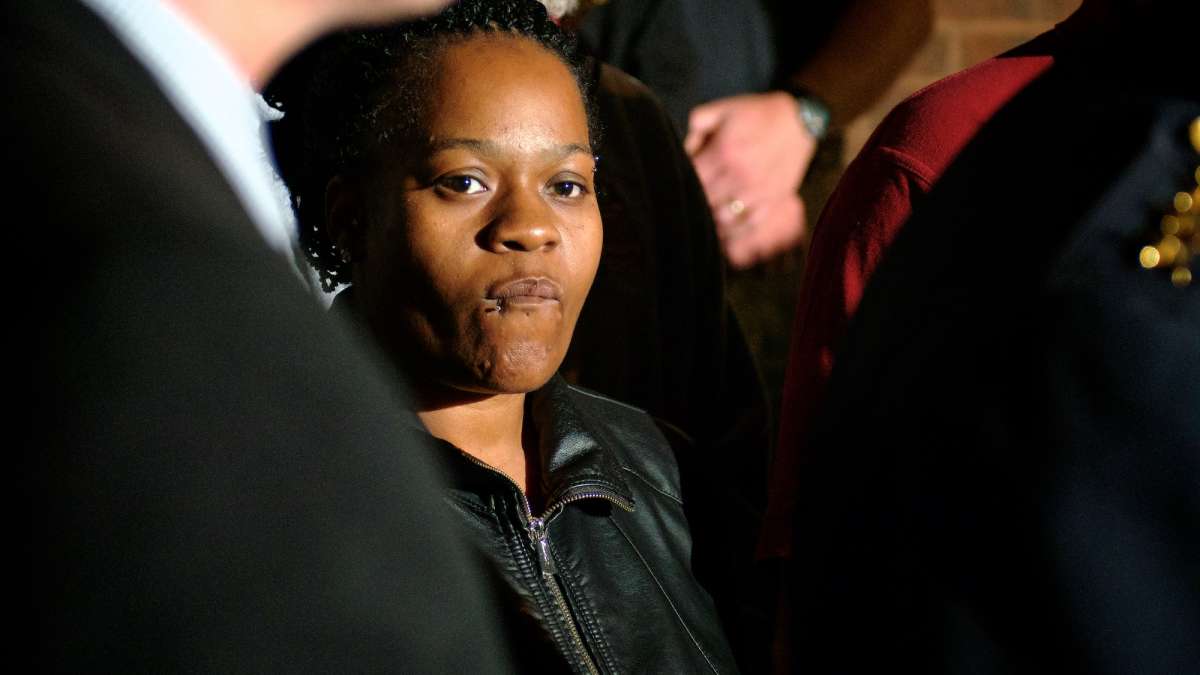
-
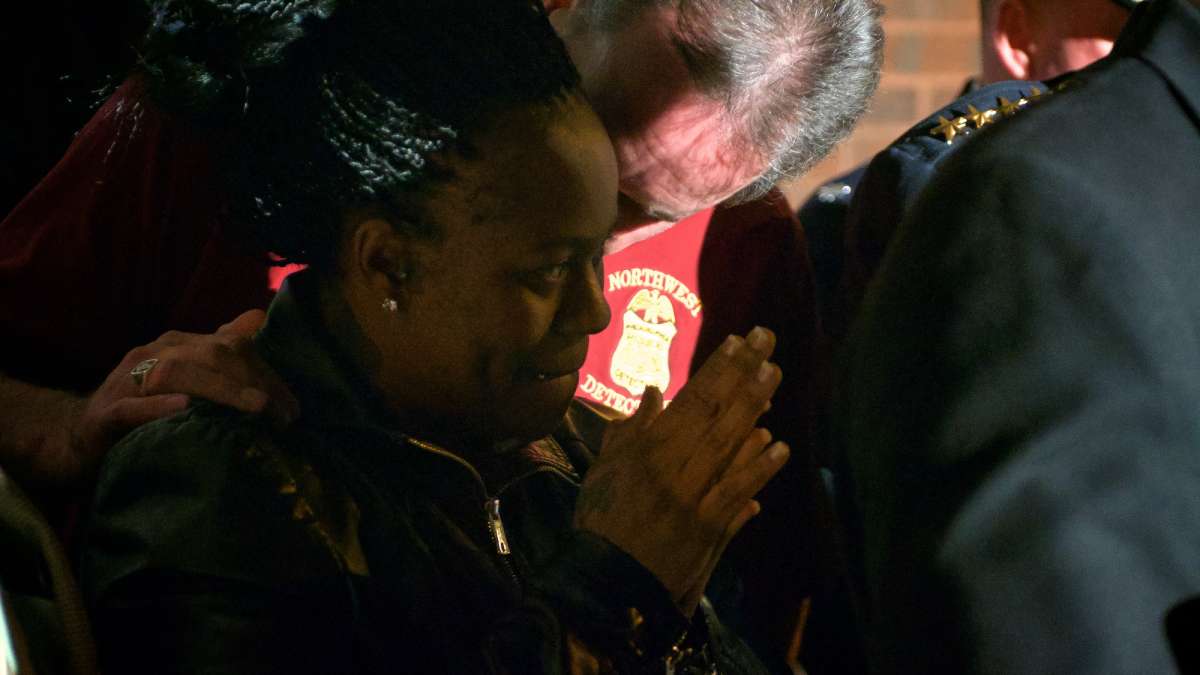
Gov. Chris Christie’s name wasn’t on the ballot Tuesday, but he was clearly one of the biggest winners of the 2014 midterm elections. Christie’s 70 days of coast-to-coast campaigning and the record $104 million he raised as Republican Governors Association chairman paid off in a string of gubernatorial victories that thrust him back in the front row of 2016 GOP presidential hopefuls. And it could pay off in money, endorsements, and operatives if he jumps into the race, as expected.
Less than 10 months after the Bridgegate scandal threatened to derail both his presidential ambitions and his governorship, it was Christie whose name was polled along with Jeb Bush, Rand Paul, and Mike Huckabee in Iowa, New Hampshire and South Carolina by CNN on election night.
And it was Christie who was the face of the Republican gubernatorial landslide as he made the rounds of the five leading network and cable news shows yesterday morning, touting his favorite theme that voters “like governors who get things done” — in sharp contrast to the “lack of leadership” by President Barack Obama and the gridlock in Congress.
He grinned broadly as he fended off the welcome questions from morning news anchors about when he would make his decision on 2016, but promised Fox News teasingly, “You’ll be seeing a lot more of me.”
Christie made sure future Republican presidential primary voters would see a lot of him this year by winning a behind-the-scenes battle in 2012 with Louisiana Gov. Bobby Jindal over who would get to run the Republican Governors Association during the high-profile 2014 presidential midterm election cycle, when 36 of the nation’s 50 governorships are up for election. Christie didn’t want to run the RGA during the 2013 cycle, when his own reelection and Virginia were the only two races on the ballot, or in 2015, when only Kentucky, Louisiana, and Mississippi have elections for governor.
While most political analysts correctly expected the GOP to take control of the U.S. Senate by netting seven or eight seats won by Democrats in the 2008 Obama victory, the University of Virginia’s Larry Sabato and most pollsters expected Republicans to lose at least a few of the 22 governorships they won in the 2010 anti-Obamacare midterm election. With Christie at the helm, however, the GOP confounded expectations by actually gaining at least two additional governorships and registering stunning upsets in Illinois, Maryland, and Massachusetts – three of the most heavily Democratic states in the nation.
Christie particularly targeted Obama’s home state of Illinois, making seven trips on behalf of GOP underdog Bruce Rauner, and delighted in the defeat of Gov. Martin O’Malley’s hand-picked successor in Maryland. Christie said the GOP’s victory showed that O’Malley’s “high taxes and big spending” were too much “even for Maryland.” O’Malley had criticized Christie’s plan for a 10 percent across-the-board New Jersey income tax cut in 2011 when he was serving as chairman of the Democratic Governors Association.
Christie had a critical voice in deciding where to put the record $104 million he helped the RGA raise — a point that Wisconsin Gov. Scott Walker, a potential 2016 rival, underscored when his aides questioned why Christie wasn’t putting more money into his race. Under Christie, the RGA put $6 million into Walker’s successful reelection effort, but poured a record $19 million into Florida — a decision that paid off.
While Republican strategists knew they would lose Pennsylvania, the GOP held the big swing states of Florida — where Christie spent eight days — Wisconsin, Michigan, and Ohio. It was important to keep control of the “election machinery,” as Christie put it, for the 2016 presidential election — an unsubtle reference to the importance of Republican Gov. Jeb Bush sitting in the governor’s office in Florida in 2000 during the “hanging chad” recount that gave his brother, George W. Bush, the presidency.
“By electing or reelecting so many Republican governors, he has key allies around the country who may help him down the road when he runs for president,” Ben Dworkin, director of Rider University’s Rebovich Institute for New Jersey Politics, pointed out. “Governors are generally the head of their party and can mobilize an entire political apparatus on your behalf. It’s critical having strong relationships with Republican governors who owe you.
“Christie’s year as chairman of RGA gave him an opportunity to test is message in front of audiences across the country on the RGA tab,” Dworkin noted. In fact, the RGA spent $1.2 million just on Christie’s private jet travel. “One of the questions about Christie has been whether his unique political style will play elsewhere. As chairman of the RGA, he got to spend months tweaking his message, and most people who want to run for president don’t get that opportunity until they actually run.”
Just as important, Dworkin said, “Christie got to meet all of the major party fundraisers and key political operatives in every state. Running for president is a tremendous undertaking that requires not just a handful of aides, but key reliable operatives you can count on all around the country. He wouldn’t have gotten the opportunity to do that without RGA.”
Massachusetts Gov. Mitt Romney managed to alienate many Republican governors during his 2006 RGA chairmanship by blatantly using his year to try to build momentum for the 2008 presidential bid he eventually lost to Sen. John McCain (R-AZ).
Christie, however, apparently has accomplished the same purpose without arousing public criticism from GOP gubernatorial candidates. Christie spent five days campaigning in Iowa, which holds the critical first presidential caucus, on behalf of Gov. Terry Branstad, whose election was never in doubt.
He also put four days in New Hampshire, whose first-in-the-nation primary follows Iowa on the political calendar, campaigning for both GOP gubernatorial candidate Walt Havenstein and former U.S. Sen. Scott Brown, who was trying to win a seat in the Granite State after losing his reelection bid in Massachusetts. Both lost, as expected, but Christie made valuable contacts in a Northeastern state he will have to do well in if he expects to win the Republican nomination.
Christie also made several stops in South Carolina, which hosts the second Republican presidential primary, even though GOP incumbent Nikki Haley was never in trouble.
He tried hard to oust Connecticut Gov. Dan Malloy, another frequent Christie critic who frequently contrasted his willingness to raise taxes with Christie’s tax-cut philosophy, but Malloy pulled out a narrow victory. He put a special effort into competitive campaigns in Maine, which the GOP won, and Rhode Island, where the Republican lost, and made several trips to Pennsylvania even after strategists knew that GOP Gov. Tom Corbett had no chance at victory.
The one trip Christie refused to make was just a bridge or tunnel toll away. Much to the (chagrin of New York Republican nominee Rob Astorino, Christie refused to support him — ostensibly because he had no chance to win, but actually in deference to Christie’s symbiotic relationship with Democratic Gov. Andrew Cuomo on thorny Port Authority issues that are under investigation by federal and state authorities in the wake of Bridgegate.
Christie’s role in the parade of Republican gubernatorial victories helps him to continue to put the Bridgegate scandal behind him, said John Weingart, associate director of Rutgers University’s Eagleton Institute of Politics.
“He’s getting his aura back,” Weingart said. “He campaigned very publicly for a lot of people who won, and got to know a lot of governors and key political people. He’s been building back steadily from Bridgegate, but if (Tuesday’s) elections had gone differently, and Republicans lost five or 10 governorships, instead of winning more, this would have taken a different turn.”
____________________________________________
NJ Spotlight, an independent online news service on issues critical to New Jersey, makes its in-depth reporting available to NewsWorks.
WHYY is your source for fact-based, in-depth journalism and information. As a nonprofit organization, we rely on financial support from readers like you. Please give today.




